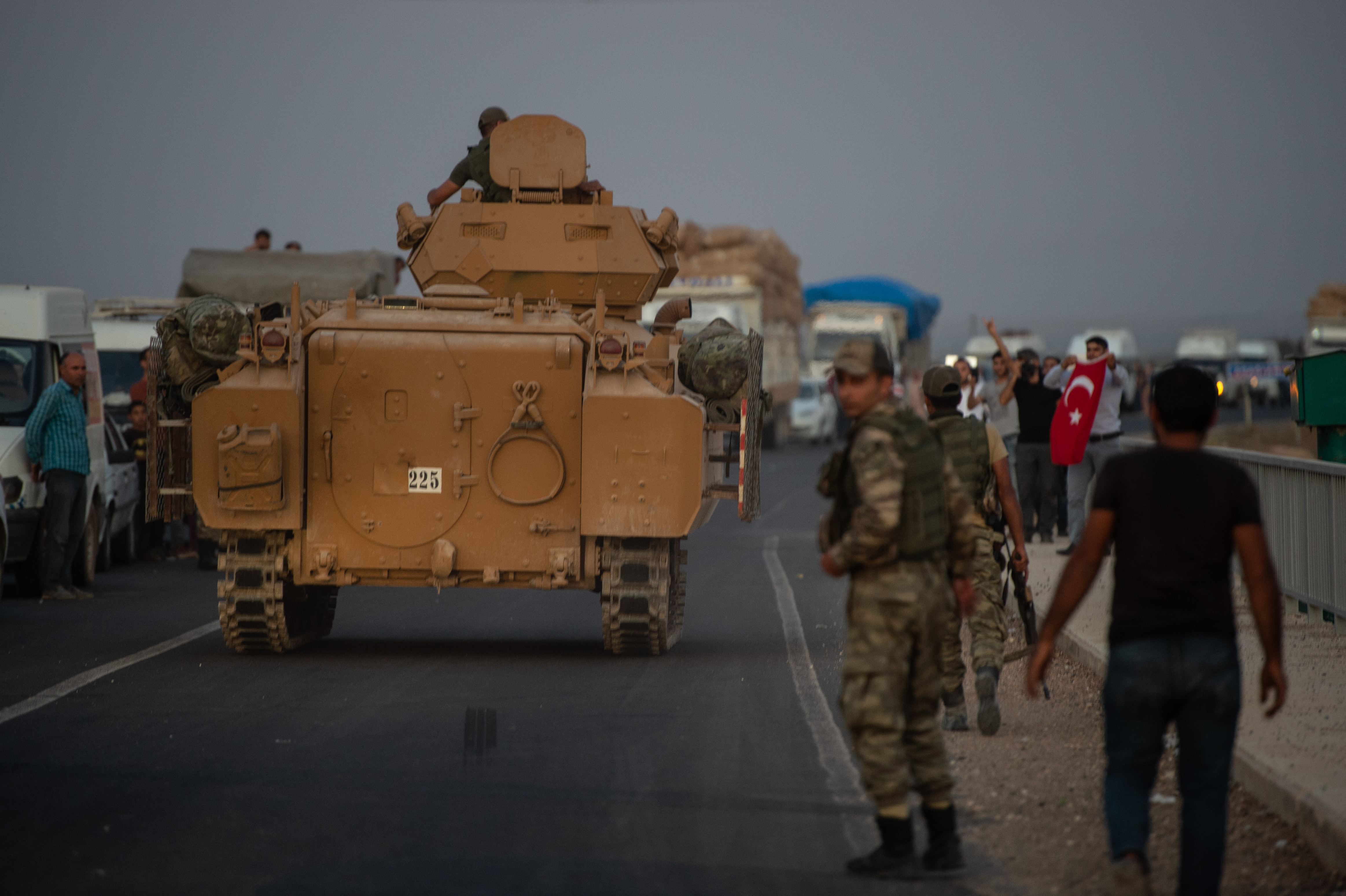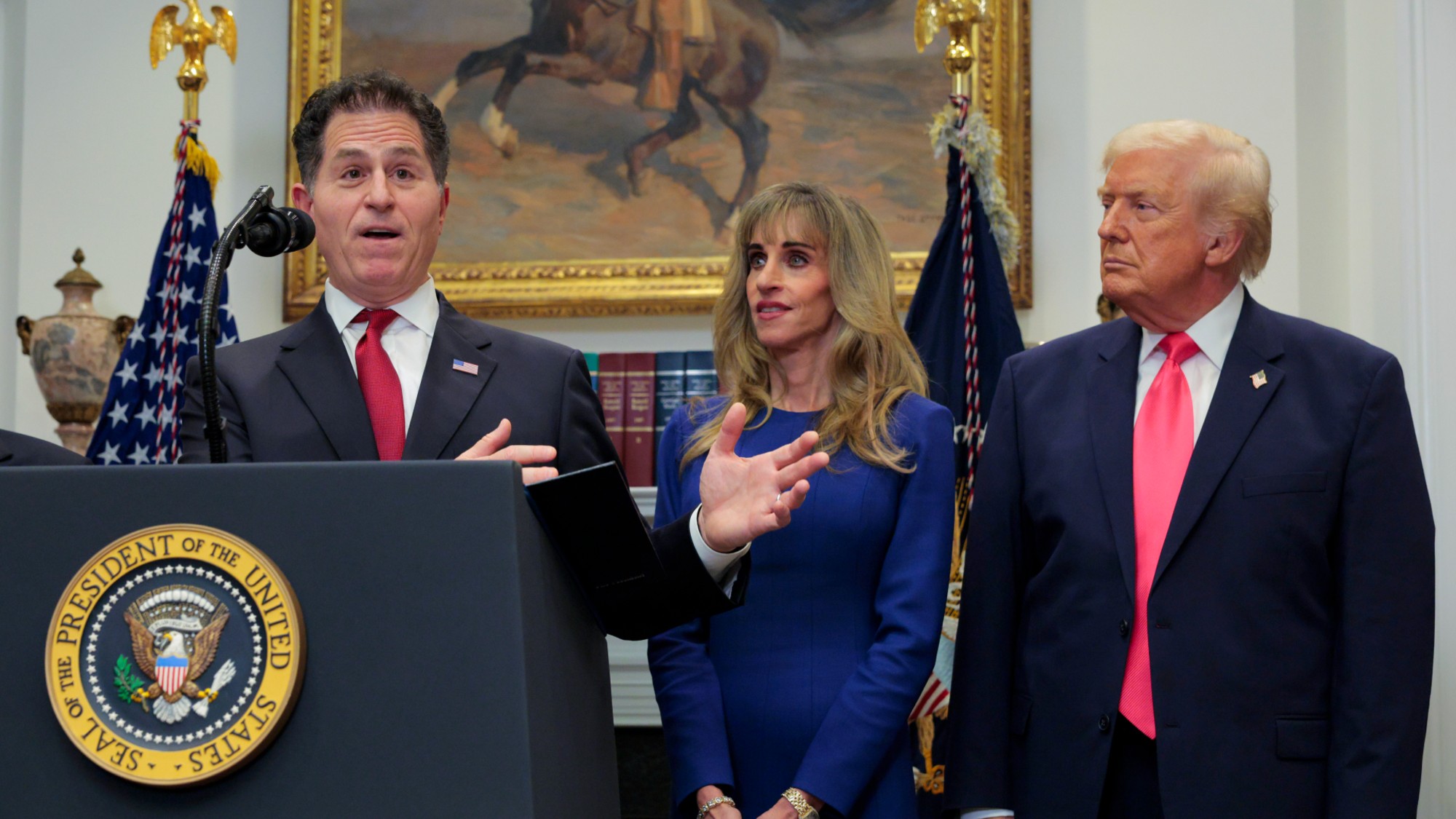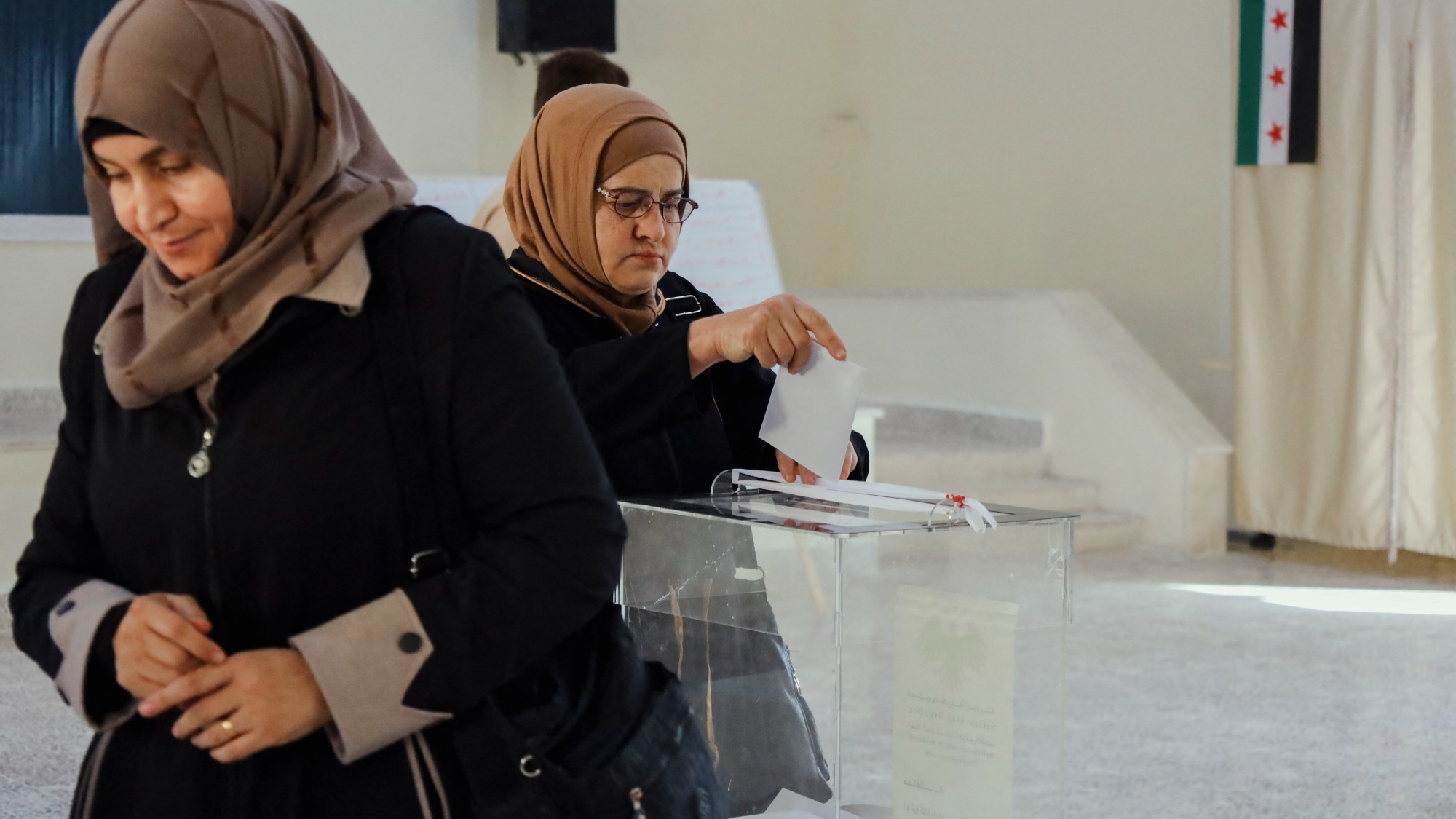Turkey attacks US allies in Syria after Trump ‘green light’
US president under fire from his own party for abandonment of Kurdish allies


A free daily email with the biggest news stories of the day – and the best features from TheWeek.com
You are now subscribed
Your newsletter sign-up was successful
Confusion, indignation, and fear reigned on Wednesday in northeastern Syria, as Turkish armed forces launched a widely-expected offensive into territory controlled by the Kurdish-led Syrian Democratic Forces who only recently fought alongside US troops in the fight against Islamic State.
During a phone call between the pair on Sunday, US President Donald Trump reportedly gave Turkish President Recep Tayyip Erdogan the “green light” for a Turkish offensive in northeastern Syria.
US forces were urgently evacuated from the area on Monday, and yesterday, the Turkish military began Operation Peace Spring, with aerial and artillery bombardments of key towns. “Turkish howitzer fire then hit bases and ammunition depots of the Kurdish YPG militia,” Reuters reports.
The Week
Escape your echo chamber. Get the facts behind the news, plus analysis from multiple perspectives.

Sign up for The Week's Free Newsletters
From our morning news briefing to a weekly Good News Newsletter, get the best of The Week delivered directly to your inbox.
From our morning news briefing to a weekly Good News Newsletter, get the best of The Week delivered directly to your inbox.
Late yesterday, The New York Times carried the news that, after about six hours of bombardment, “Turkish troops and their Syrian rebel allies crossed the border, opening a ground offensive.” Civilians are reported to be fleeing in their thousands.
Trump’s decision surprised even his own administration and defence officials, drawing anger from both Republican allies in Congress and the international community, who accused him of abandoning Kurdish allies in the battle to defeat Isis to the mercy of a deeply hostile Turkey.
Trump denied the accusations, tweeting that “in no way have we abandoned the Kurds”, whom he called “special people and wonderful fighters”.
Speaking to Christiane Amanpour on CNN yesterday, Gulner Aybet, a senior adviser to Erdogan, was unequivocal that her president was aligned with his US counterpart: “President Trump and President Erdogan have reached an understanding over precisely what this operation is,” she said.
A free daily email with the biggest news stories of the day – and the best features from TheWeek.com
–––––––––––––––––––––––––––––––For a round-up of the most important stories from around the world - and a concise, refreshing and balanced take on the week’s news agenda - try The Week magazine. Get your first six issues free–––––––––––––––––––––––––––––––
An assault against Isis or Kurds?
A spokesman for Erdogan, Fahrettin Altun, writing in The Washington Post yesterday, called for international support for Turkey’s offensive. Kurdish members of the SDF could join with Turkey in the fight against Isis, claims Altun, or not, “in which case we will have no choice but to stop them from disrupting our counter-Islamic State efforts.”
“This is not a move against the Kurds. Turkey doesn’t have any problem with the Kurds,” said İbrahim Kalın, Erdoğan’s right-hand man, yesterday. Instead, he claimed, the objective is to take responsibility for the fight against ISIS.
This stated position would represent a marked shift from long-stated Turkish policy to eradicate the SDF due to its links with Turkey’s Kurdistan Workers’ Party, or PKK, which Turkey considers a terrorist group. “It’s plain this abrupt change of tack was influenced by the uproar in Washington that followed Trump’s decision,” reports The Guardian.
Indeed, most analysts claim fighting a largely defanged Islamic State is not Turkey’s priority. Instead, says Reuters, they have two long-standing objectives in the area, “to drive the Kurdish YPG militia which it deems a security threat away from its border, and to create a space inside Syria where 2 million Syria refugees currently hosted in Turkey can be settled”.
William Gritten is a London-born, New York-based strategist and writer focusing on politics and international affairs.
-
 What to know before filing your own taxes for the first time
What to know before filing your own taxes for the first timethe explainer Tackle this financial milestone with confidence
-
 The biggest box office flops of the 21st century
The biggest box office flops of the 21st centuryin depth Unnecessary remakes and turgid, expensive CGI-fests highlight this list of these most notorious box-office losers
-
 The 10 most infamous abductions in modern history
The 10 most infamous abductions in modern historyin depth The taking of Savannah Guthrie’s mother, Nancy, is the latest in a long string of high-profile kidnappings
-
 How corrupt is the UK?
How corrupt is the UK?The Explainer Decline in standards ‘risks becoming a defining feature of our political culture’ as Britain falls to lowest ever score on global index
-
 The high street: Britain’s next political battleground?
The high street: Britain’s next political battleground?In the Spotlight Mass closure of shops and influx of organised crime are fuelling voter anger, and offer an opening for Reform UK
-
 ‘These accounts clearly are designed as a capitalist alternative’
‘These accounts clearly are designed as a capitalist alternative’Instant Opinion Opinion, comment and editorials of the day
-
 Is a Reform-Tory pact becoming more likely?
Is a Reform-Tory pact becoming more likely?Today’s Big Question Nigel Farage’s party is ahead in the polls but still falls well short of a Commons majority, while Conservatives are still losing MPs to Reform
-
 Taking the low road: why the SNP is still standing strong
Taking the low road: why the SNP is still standing strongTalking Point Party is on track for a fifth consecutive victory in May’s Holyrood election, despite controversies and plummeting support
-
 Syria’s strange post-Assad election
Syria’s strange post-Assad electionThe Explainer Sunday’s limited vote ‘suited the phase Syria is undergoing’, says interim president
-
 What difference will the 'historic' UK-Germany treaty make?
What difference will the 'historic' UK-Germany treaty make?Today's Big Question Europe's two biggest economies sign first treaty since WWII, underscoring 'triangle alliance' with France amid growing Russian threat and US distance
-
 Is the G7 still relevant?
Is the G7 still relevant?Talking Point Donald Trump's early departure cast a shadow over this week's meeting of the world's major democracies
